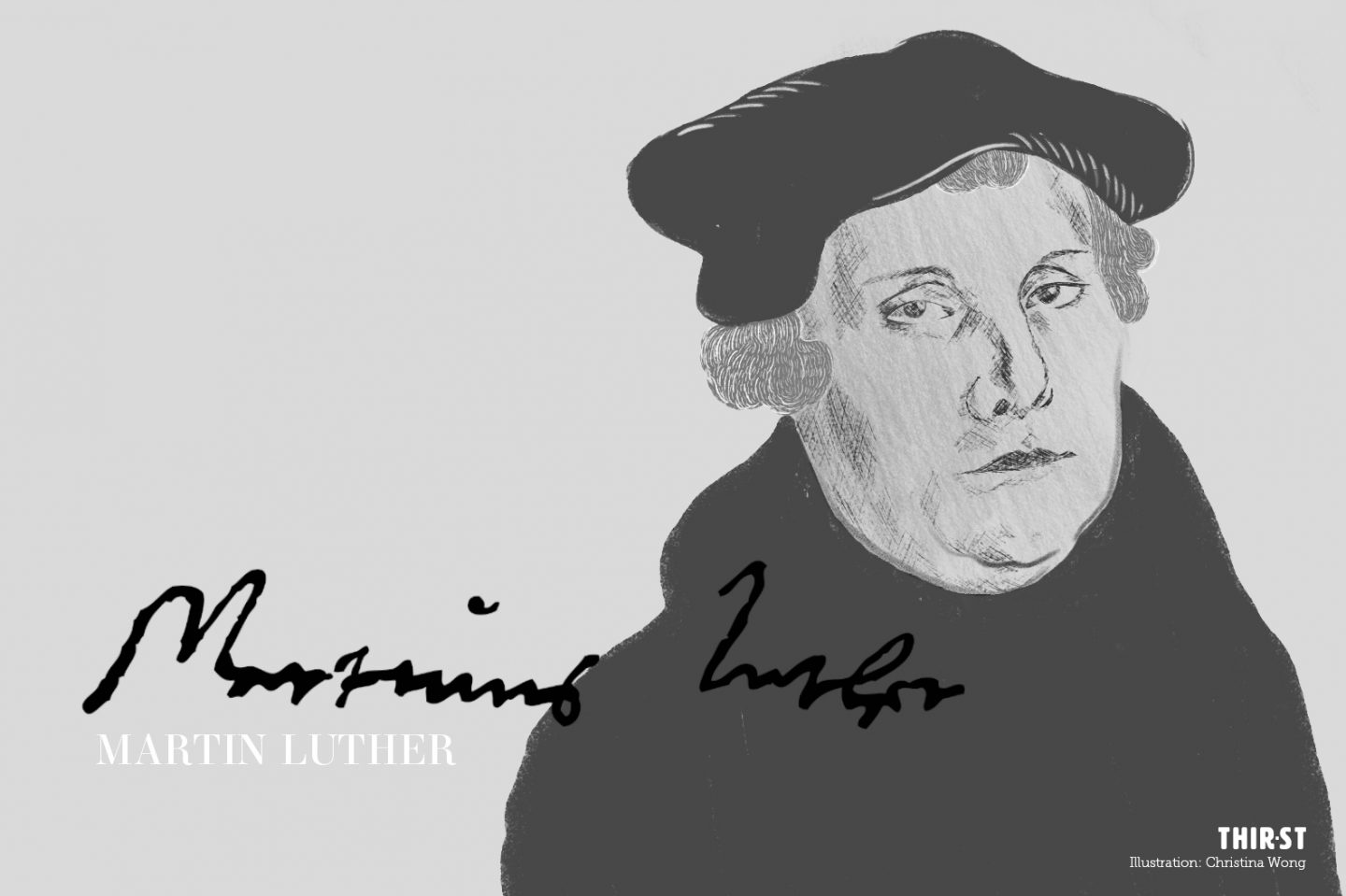At the heart of any reformation is the sense that the church of the time has grown stale. When the things of God which are meant to bring new life and transformation become things that enslave and cause despair.
Martin Luther was the German monk who – exactly 500 years ago today, on October 31, 1517 – was moved to stand up because he witnessed a dryness in the church, corruption in the land, and was personally plagued by soul-deep anxieties.
Though many had tried reforms before, this Protestant Reformation stuck because it was a reformation that came from the rediscovery of the Scriptures. From there flowed such wonderful truths, also known as the Five Solas: Christ Alone, Grace Alone, Faith Alone, Scripture Alone, the Glory of God Alone. These truths about a heart-warming God made Luther leap for joy and soon traversed all Europe and remain till this day.
That was the Reformation, yet reformation is not over; there must always be reformation. Each generation must – must – find God, through His Word, for ourselves.

Why bother looking at what happened in the past? Especially events like the Protestant Reformation that occurred all the way back in 1517? Somewhere so far away, too – in Europe.
What would a few monks and ancient scholars know about what is happening in my life, my culture and my circumstances right now?
Consider the words of the Teacher in Ecclesiastes 1:9-10 (ESV): What has been is what will be, and what has been done is what will be done, and there is nothing new under the sun. Is there a thing of which it is said, “See, this is new”? It has been already in the ages before us.
We often think that the things we are going through cannot be understood by anyone other than ourselves or our peers, and we are the ones who need to trail-blaze a new ministry or find new teachings to deal with these “modern issues”.
But read widely enough through books of all ages, and you’ll quickly learn that what King Solomon said still holds true: What we think are modern issues are often the same old issues, just with new packaging. So the solutions to those issues are still the same old solution, but may need new packaging themselves.
What King Solomon said still holds true: What we think are modern issues are often the same old issues, just with new packaging.
CS Lewis once said, “Every age has its own outlook. It is specially good at seeing certain truths and specially liable to make certain mistakes.
“Where they are true they will give us truths which we half-knew already. Where they are false they will aggravate the error with which we are already dangerously ill. The only palliative is to keep the clean sea breeze of the centuries blowing through our minds, and this can be done only by reading old books.
“Not that there is any magic about the past. People were no cleverer then than they are now; they made as many mistakes as we. But not the same mistakes.”
When we look at history, we see the errors of the past, and what was done to correct them, such as the reform of churches. If we understand these ancient struggles deeply enough, in their own context, it allows us to see the same error or problems occurring within our own societies, our own churches and our own lives.
We also see what was/is needed to provide not just a quick or superficial fix, but to sustain long-term change and growth. Often you will find there is no need to reinvent the wheel, only perhaps “upgrade” it from a wagon-wheel to a car-wheel.

Ever read stories about people from the Age of Reformation like Martin Luther, John Wycliffe, William Tyndale and John Calvin? If you persevere long enough to get past the language (buy an abridged modern English translation if that helps!), once you get past the packaging, I think you will find they speak directly to you in your situation and to current issues.
I believe you will find them warm and insightful, with a pastoral heart bigger than you can imagine, and a love for God fierier than the most emotion-stirring megachurch service.
When we look at history, we see the errors of the past, and what was done to correct them, such as the reform of churches.
Read them for yourselves. If they’re too unfamiliar and intimidating, read them with someone who can help you understand what they are truly saying.
A good place to start? Try The Reformation, What You Need to Know and Why, by Michael Reeves and John Stott. Or if that’s too long, start with this booklet, Freedom Movement: 500 Years of Reformation, again by Michael Reeves. You can download a free PDF version here.
Let those be your breeze of the centuries, leading you to hopefully a greater level of clarity and passionate love for this Ancient of Days that we serve.










